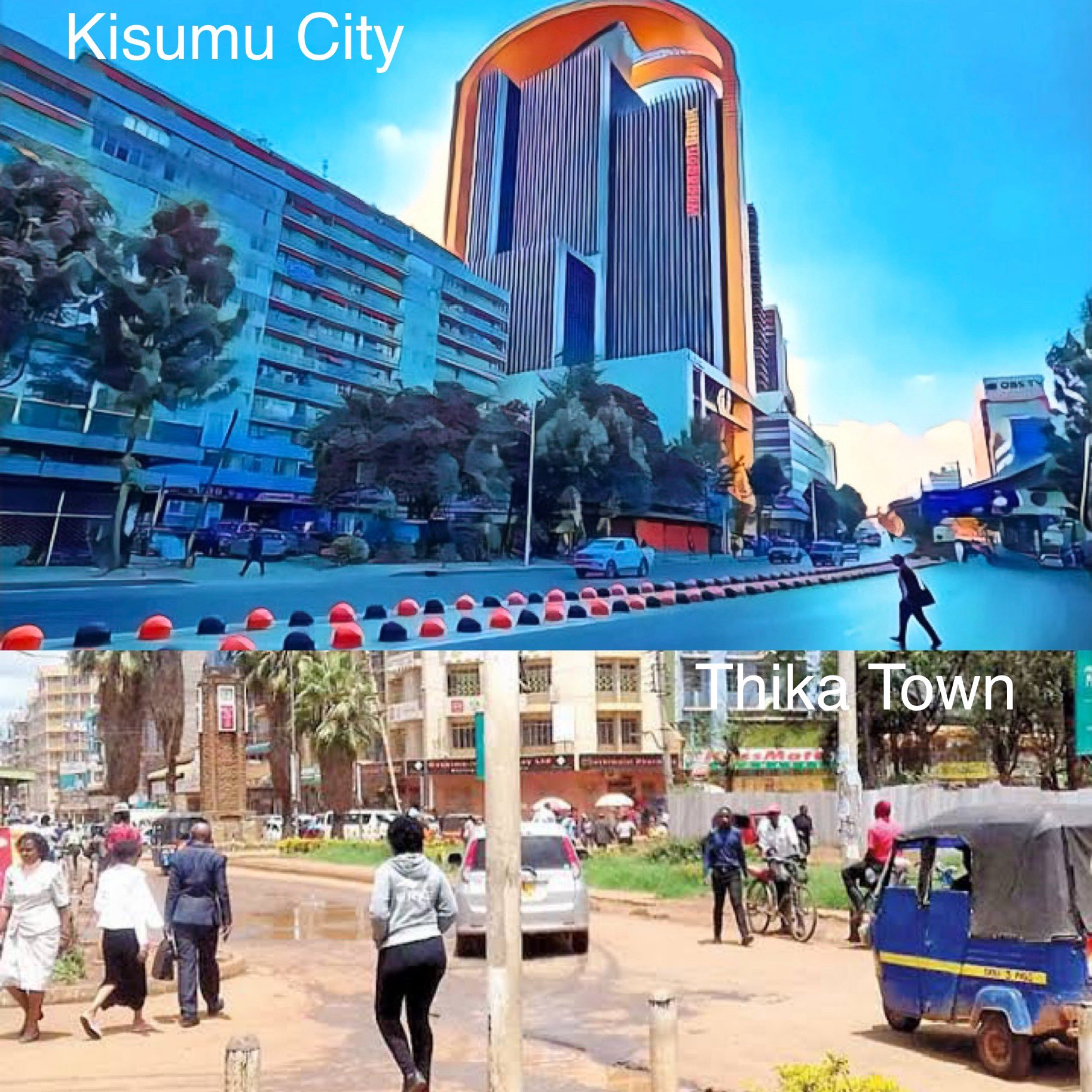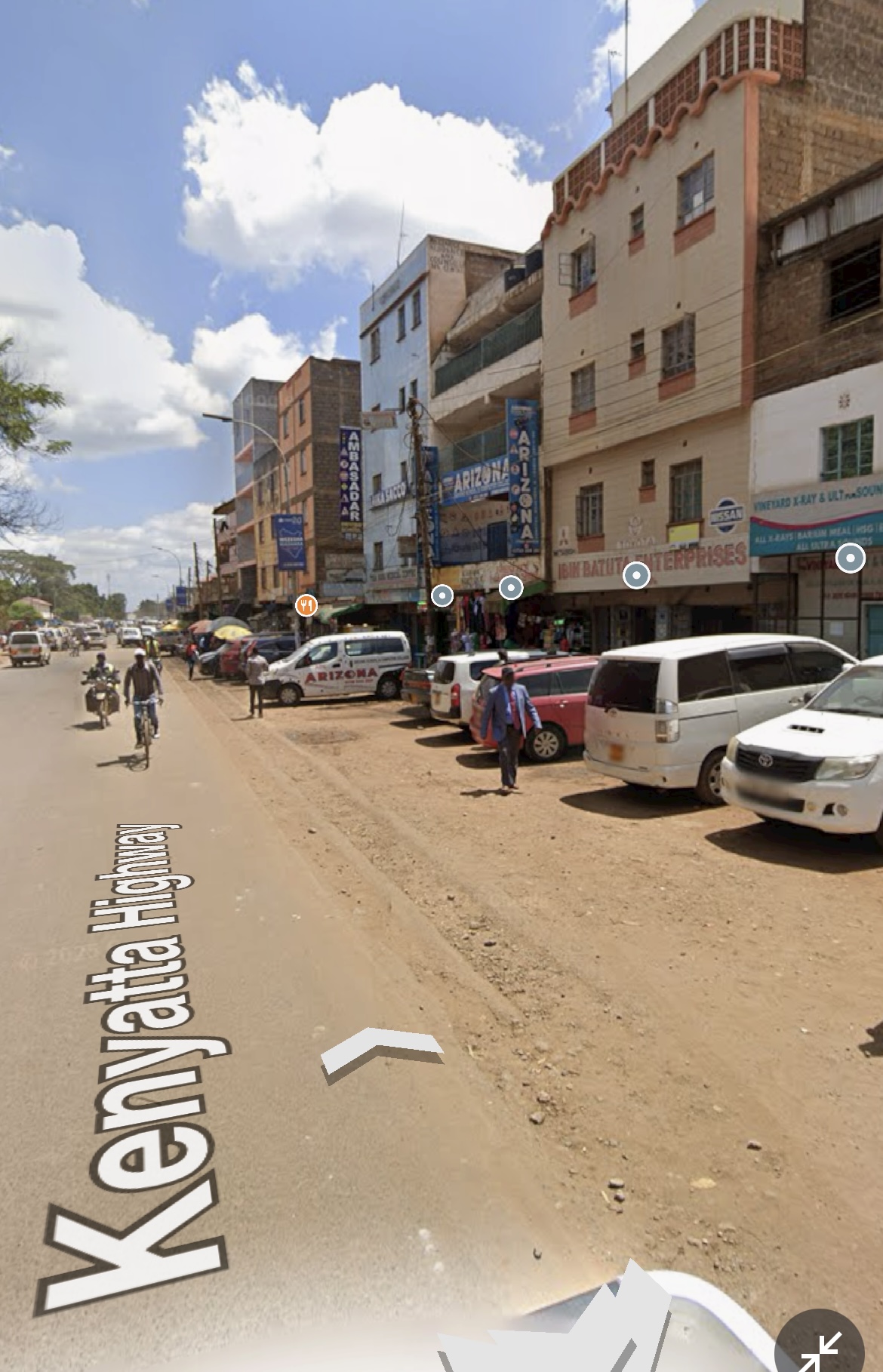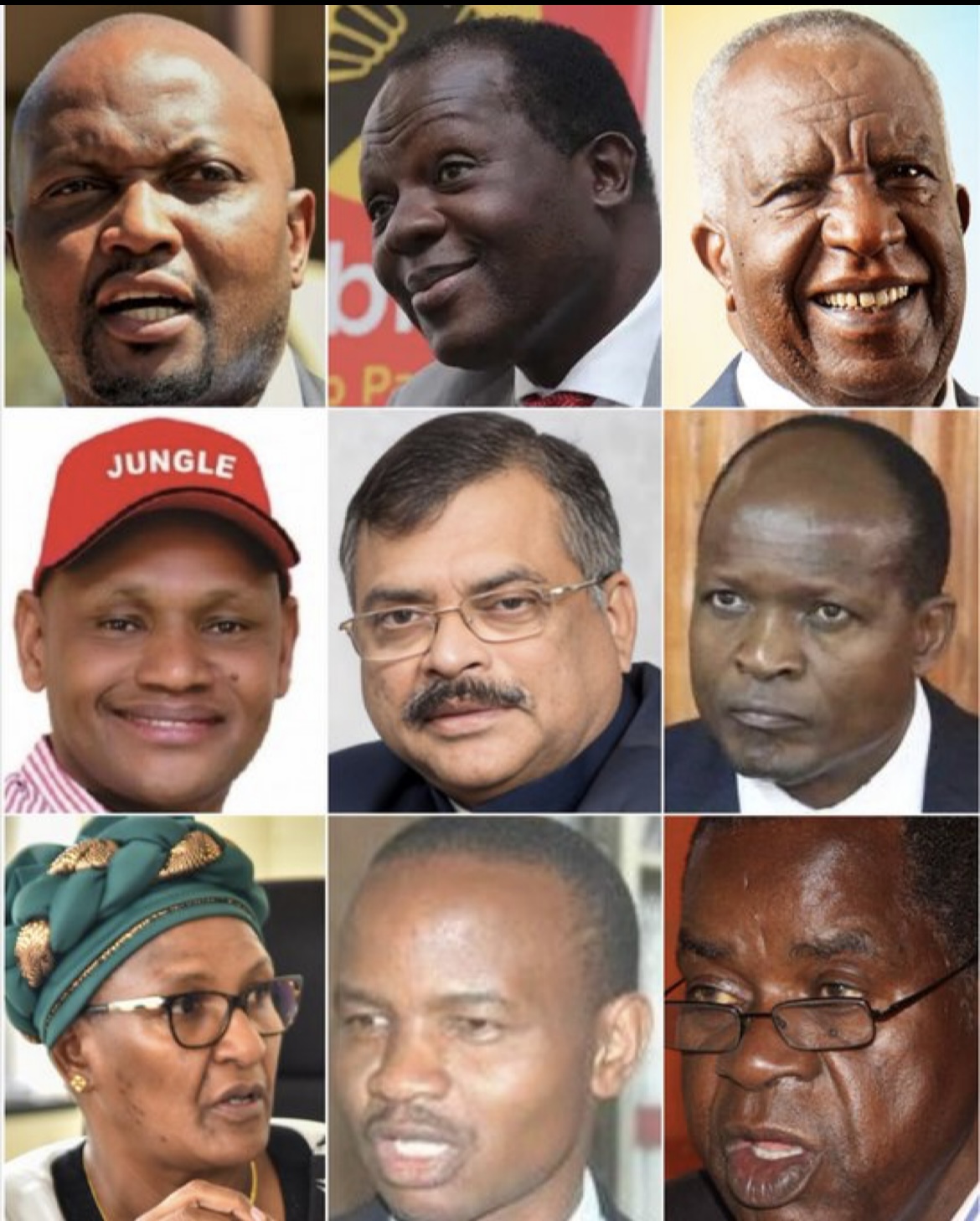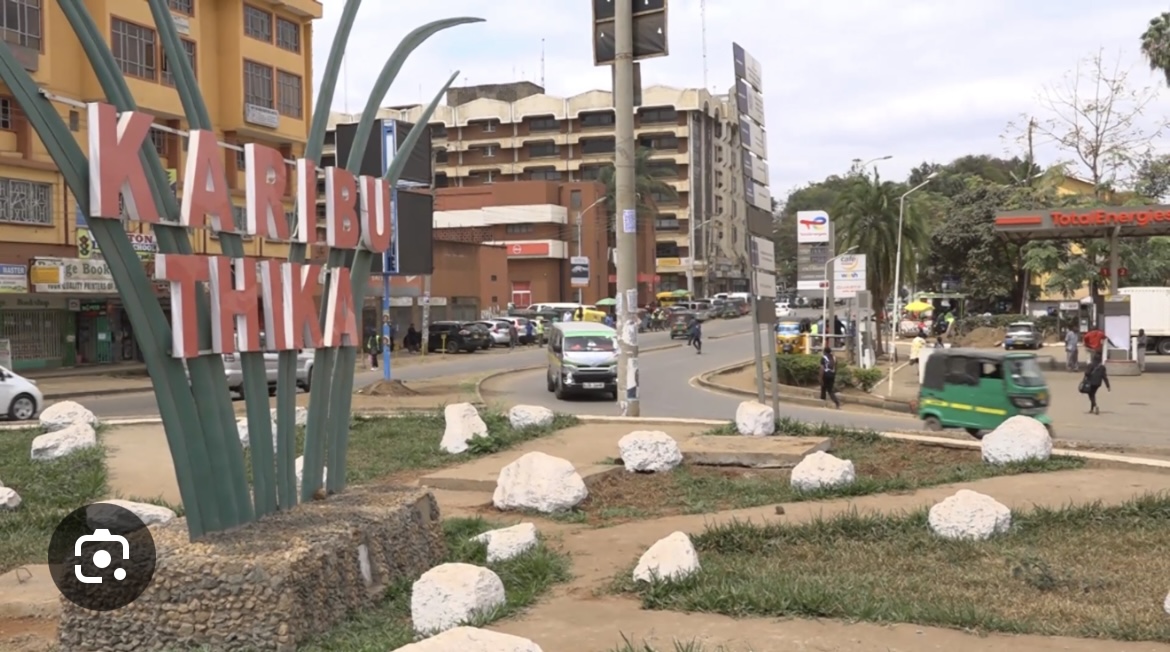Kenya stands at a critical crossroads in its development journey, caught between the deep cultural pride of its rural roots and the pressing demands of a rapidly modernizing world. While rural life has long been celebrated for its perceived purity, resilience, and authenticity, an unchecked reverence for ruralism has, in many instances, become a subtle yet powerful impediment to the country’s holistic growth. What is often seen as cultural pride can, in fact, foster a mindset that resists innovation, undermines intellectual investment, and perpetuates a cycle of economic stagnation.
This article is not a dismissal of rural identity – it is a call to evolve. A call for rural-bred Kenyans to embrace urban sophistication and global thinking, to abandon divisive constructs rooted in colonial manipulation, and to unite around a shared vision of national progress, wealth creation, and cultural elevation.
The Ruralist Mindset: A Case Study in Lost Opportunity

Thika Town once touted as the Birmingham of Kenya is now a shell of its former self, thanks to residents allowing rural-bred emigrants led by Maathai Ngunjiri to control the narrative
To understand the impact of ruralism, one need only consider the story of a well-known investor in Thika called Maathai Ngunjiri. This individual rose from humble beginnings and built a fortune through the importation and sale of second-hand shoes. While the media often lauds such stories as proof of entrepreneurial spirit, this praise overlooks the broader economic consequences of such ventures.
The trade in second-hand items is a form of economic leakage. It creates jobs not in Kenya but abroad – mostly in the countries that manufacture and export these used goods. The continued importation of low-value products contributes to de-industrialization, stifles local manufacturing, and weakens the shilling through persistent capital flight. In short, it sustains a dependency economy.
More troubling, however, is how this investor handled his wealth and influence. He purchased Vedesh Cinema Hall, a historic cultural landmark in Thika with the potential to be repurposed into a center for arts, music, and youth development. Rather than preserve or reimagine this cultural treasure, he demolished it and constructed a supermarket filled with imported goods. This is ruralism in action: a shortsighted, scarcity-driven mindset that overlooks long-term value for immediate, low-effort returns.

RURALISM: The iconic Vedesh Cinema Hall was demolished and is now Maathai Supermarkets, another manifestation of the backward nature of rural-bred individuals
This act, though seemingly inconsequential to some, reflects a deeper philosophical flaw – a resistance to creative, civic, and intellectual development in favor of profit-first thinking. It reveals how individuals conditioned by ruralism may prioritize transactional wealth accumulation over societal uplift and legacy-building.
Ruralism as a Mindset: Scarcity, Selfishness, and Suspicion
Ruralism, in this context, transcends geography. It is a psychological orientation molded by years – often generations – of scarcity and hardship. It breeds deep self-preservation, an aversion to risk, and, crucially, a mistrust of professionals, creatives, and intellectuals. Those who rise from this background and achieve economic success frequently carry these traits into their ventures. They opt for brokers over trained architects, choose the cheapest materials over durable infrastructure, and view professional expertise as an unnecessary cost rather than a value-adding asset. In doing so, they perpetuate mediocrity.
This mindset extends beyond individual business decisions and begins to shape the national landscape. Too many wealthy Kenyans – particularly those with rural roots – invest without vision. Their developments rarely consider cultural preservation, youth empowerment, or civic progress. Buildings go up, but institutions do not. Wealth is created, but legacies are not. The outcome is a country littered with short-lived businesses, neglected public spaces, and cultural decay – all the result of viewing development solely through the lens of personal gain rather than collective transformation.

Thika’s prime urban area turn into slums during rains, a culmination of years of electing slum-dwellers and rural-bred impostors promoted by the church and vernacular media like Kameme and Inooro
The lamentable irony of rural émigrés transplanting themselves to Kenya’s urban enclaves, fleeing the morass of malgovernance precipitated by their own historically misguided electoral proclivities, unveils a profound paradox. These interlopers, absconding from rural hinterlands mired in underdevelopment, venality, and administrative ineptitude, arrive bearing the same parochial, scarcity-obsessed mentalities they ostensibly sought to jettison. Far from embracing the urbane virtues of innovation, inclusivity, and forward-thinking progress, they insidiously colonize cosmopolitan spaces with retrograde practices and prejudices, transmogrifying vibrant metropolises into simulacra of the very benighted hamlets they abandoned. This deleterious cycle of regression vitiates the transformative potential of urban centers as crucibles of economic and cultural efflorescence, perpetuating a myopic ethos that exalts personal aggrandizement and tribal factionalism over communal prosperity.

Kileleshwa residents elected Robert Alai, a goon from Nyando as their MCA. He spends his days grabbing land, houses and tweeting pro-Ruto propaganda
A paradigmatic exemplar of this ignominious trend is Kileleshwa’s MCA, Robert Alai, a contemptible rustic reprobate hailing from the backwater of Nyando in Luo Nyanza. Rather than championing the hallmarks of sophisticated urban existence – such as illuminated thoroughfares, recreational commons, vibrant nocturnal economies, wellness infrastructure, or sustainable non-motorized transit – this deplorable charlatan fixates on rapacious land-grabbing and puerile tribal politicking, wholly divorced from the aspirations of urbane constituents. The residents of Kileleshwa must be castigated for their egregious lapse in judgment, electing this boorish troglodyte whose actions betray a craven disregard for the cosmopolitan ethos, instead imposing the divisive, self-serving proclivities of his provincial origins.
Moi Gardens, once a verdant oasis in Thika adorned with mature trees and cherished as a communal sanctuary, has been devastated by ruralist investors including Maathai Ngunjiri, who transformed it into a concrete sprawl dubbed “Mukiriti,” mirroring the destructive encroachments currently going on in Ngong Forest. Ngunjiri’s rural-bred disdain for urban sophistication and environmental stewardship led to the park’s demolition to make way for commercial structures, reflecting a scarcity-driven mindset that prioritizes profit over ecological and cultural legacy. This act of environmental desecration, facilitated by lax oversight and political-patronage, underscores the broader assault on Kenya’s green spaces, which exacerbates resource conflicts and undermines urban progress.
Rural-bred voters must awaken to the imperative of endorsing a progressive, urban political class – one that catalyzes holistic advancement and transcends the stultifying shackles of tribalism and avarice. Only through such enlightened leadership can they secure the manifold benefits of a forward-looking urban polity, unshackled from the ignoble legacy of their rural past.

This is Thika’s Mukiriti area, once a park with mature trees, felled by the greed of rural-bred “tycoons” who turned it into a concrete jungle. This land MUST and SHALL be reclaimed
Fleeting Wealth, Forgotten Legacies
The Kenya of the early 2000s saw a generation of tycoons accumulate vast wealth through land speculation, political patronage, and import-based commerce. Today, many of these individuals are increasingly irrelevant in a world driven by innovation, digital transformation, and socially conscious entrepreneurship.
Their failure was not in amassing wealth – it was in failing to translate that wealth into value. Few of them invested in education, technology, or the arts. Fewer still created institutions or platforms for future generations. Instead, they dismissed Kenya’s youth as naïve or “too modern,” all while ignoring the same technological revolutions transforming the economies of China, Turkey, and the West – the very countries they import from. This is the trap of ruralist thinking. It may generate quick capital, but without cultural, intellectual, and technological engagement, that capital is like a house built on sand – eventually swept away by shifting tides.

Tycoons of the Moi-era whose wealth has faded upon transition to new political dispensations signal a lack of investment in legacy
Colonial Constructs: How Division Has Been Weaponized
The persistence of ruralism in Kenya cannot be examined without acknowledging its political and colonial roots. The British colonial administration, in its effort to dominate, deliberately segmented Kenya into tribal, rural, and urban blocks. The goal was to prevent unity – a fragmented populace is easier to control.
Unfortunately, post-independence politics inherited and deepened these divides. Politicians continue to exploit the rural-urban dichotomy to advance personal agendas, pitting communities against one another through ethnic patronage and economic exclusion. The message has been dangerously consistent: rural Kenyans must reject urban values to preserve their identity, while urban dwellers are portrayed as elite and out of touch.
This artificial dichotomy is a lie. And worse, it is a lie that holds Kenya back.
To truly move forward, Kenyans must reject these colonial leftovers. Rural and urban identities must no longer be viewed as opposing forces but as complementary pillars of a unified national project. Rural-bred Kenyans should not abandon their heritage – but they must integrate it with urban sophistication: education, professionalism, aesthetics, and long-term vision.
The Power of Urban Sophistication

Thika tycoon Maathai Ngunjiri – the mascot of ruralism as evidenced by his contempt for professional, creative and technological investment in his business.
Urban sophistication is not a classist ideal – it is a cultural and intellectual approach that embraces creativity, design, excellence, and a higher standard of doing business. It values ideas as much as capital, and collaboration as much as competition.
This mindset encourages investment not just in buildings, but in institutions. It elevates construction into architecture, business into brand, and money into legacy. It allows Kenyans to think globally while acting locally – to build infrastructure that not only serves the present but inspires future generations.
For rural-bred Kenyans, embracing urban sophistication means stepping out of the comfort zone of hoarding and minimalism. It means trusting professionals, supporting the arts, engaging with modern technology, and investing in ideas that outlive them. This is how generational wealth is built – not merely through accumulation, but through impact.
A Blueprint for Unified Progress
Kenya’s future lies not in romanticizing either its rural past or urban present, but in harmonizing the two. A farmer in Eldoret should feel as connected to Kenya’s future as a software developer in Nairobi. The children of rural entrepreneurs should grow up with the same access to libraries, tech hubs, and cultural centers as those in the capital. This is not idealism – it is the only viable strategy for sustainable development.
To get there, wealthy Kenyans – especially those from rural backgrounds – must:
- Invest in professional expertise across architecture, design, education, and technology.
- Preserve and reimagine cultural landmarks, rather than demolishing them for quick profits.
- Support youth empowerment programs, mentorship, and platforms for creative expression.
- Fund long-term initiatives, not just self-enriching ventures.
- Reject divisive narratives that frame development as a rural-urban competition.
Conclusion: Legacy, Not Just Wealth
Kenya’s true wealth lies in its people – creative, ambitious, and resilient. But potential must be guided by vision. Ruralism, when left unchecked, confines Kenya to a past defined by scarcity, suspicion, and division. It is time to move beyond it.
Urban sophistication is the missing link – a mindset that doesn’t discard rural values but refines and elevates them. It is the bridge between Kenya’s heritage and its future, the key to breaking free from colonial constructs and building a unified, prosperous nation.
The story of Thika’s investor is not an isolated mistake – it is a mirror reflecting a broader national challenge. But it can also serve as a turning point. Let this be the moment where Kenyans – rural and urban alike – choose legacy over accumulation, unity over division, and vision over vanity.
Only then can we truly build a Kenya that thrives across generations.


1 comment
You sound like a bitter with life.. why don’t you make money yourself come and make that change!